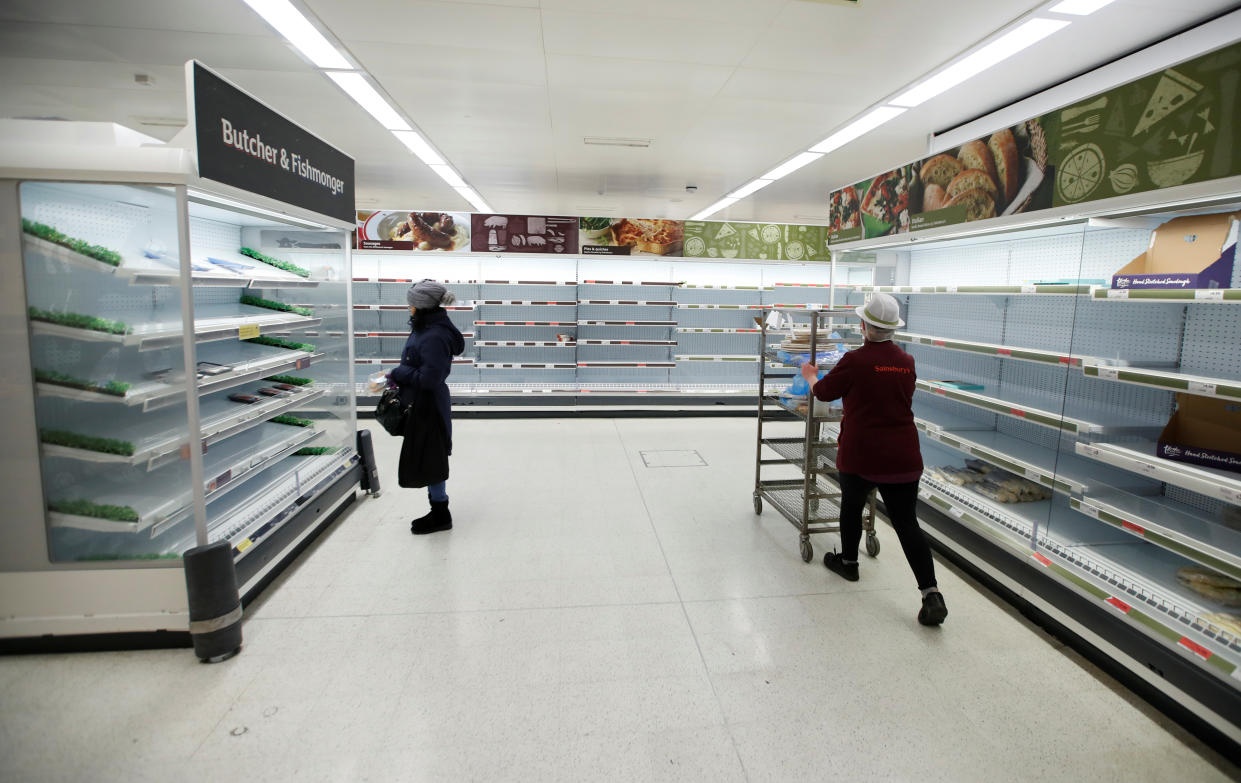Supply chain strains leads to calls for more government aid

Charles Fallon, president of LIDD Supply Management Consultants in Montreal, has seen half of the company’s projects suspended over the past week as the coronavirus continues to wreak havoc on the economy.
Fallon has already cut salaries for the 55 employees that work at LIDD, which helps companies design and build distribution centres and manufacturing facilities, as well as the software used to run them. But he’s concerned the move will not be enough, as the company’s customers continue to be hit by disruptions, and concerns about liquidity mount.
“It’s not like the company itself will die, but I don’t think we can return back to what we were just 14 days ago,” Fallon said.
“If this goes until the end of April and into May, I think there’s no going back.”
While various levels of government fight to ensure essential businesses remain open, Canada’s supply chain is facing disruptions as companies grapple with stalled production and disappearing demand.
“The supply chain has slowed considerably,” said Dennis Darby, president of the Canadian Manufacturers and Exporters, an industry group that advocates for about 2,500 companies.
“What we’re seeing in many cases is because Canada’s global economy is globally integrated, particularly with the U.S., is that when customer orders slow there, it slows down manufacturers and customers aren’t paying as fast.”
This week the Ontario and Quebec governments ordered all non-essential businesses to close in an effort to prevent the spread of COVID-19. Each province has listed businesses that are involved in and support supply chains as essential services, including companies involved in processing, packaging, distribution, delivery and maintenance work.
Prime Minister Justin Trudeau also said Thursday that the government is working “to keep the supply chains moving,” particularly when it comes to manufacturers producing medical supplies for the healthcare industry.
Still, as the list of businesses that are required to close grows, many companies in the supply chain are seeing demand fall. Businesses across the country are calling on further assistance from government to help supplement the economic side effects of this massive public health crisis.
“If the government is imposing conditions in which the economy cannot function, they need to be responsible and make sure that they do something to directly support (companies),” Darby said.
“We firmly believe it would be the best way to ensure that we come back out of this terrible public health crisis strong and ready to recover.”
However, not every industry is struggling when it comes to demand. Grocery retailers have seen business grow in recent weeks, as customers flock to stores and turn online to buy food. Walmart Canada announced last week that it planned on hiring 10,000 employees to work in its stores and distribution centres. In the United States, Amazon said it planned to hire 100,000 people to work in its distribution centres.
“The supply chain is still functioning and functioning well, but there is no doubt that there are impacts and that the impacts are growing as we move forward through this,” said Christian Buhagiar, the chief executive of industry group Supply Chain Canada. Buhagiar said that 70 per cent of his members have reported seeing disruptions in the supply chain, but that companies are use to dealing with those disruptions.
“Disruptions are always happening and it’s always being managed by supply chain professionals... We have not seen what I would consider to be ruptures or cracks in the supply chain in Canada.”
Fallon would like to see the government significantly increase the 10 per cent wage subsidy it is offering to small businesses – something he called “just comical” – to around 75 per cent, something being done in some European countries. He also says the government should go a step further and consider suspending income tax revenues.
“Those kind of measures would allow social distancing for a period without worrying about our business surviving,” Fallon said.
“Or else it’s going to be painful.”
Download the Yahoo Finance app, available for Apple and Android and sign up for the Yahoo Finance Canada Weekly Brief.



